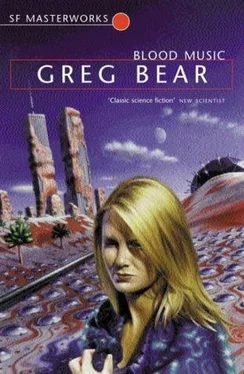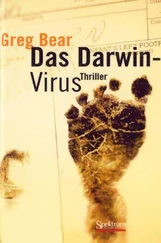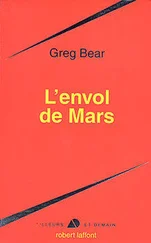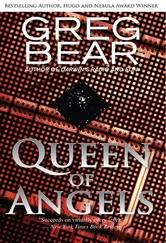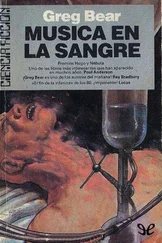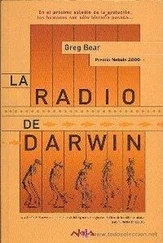It was getting dark when John returned with a heavy-duty waterproof lantern from their truck. Jerry sat by the hole, smoking a cigarette and tapping the ashes into it. “Brought a rope, too,” John said, dropping the coil next to his brother’s knee.
“What’s the town look like?” Jerry asked.
“From what I could see, same as before, only more so.”
“Be anything left tomorrow?”
John shrugged. “Whatever it turns into, I suppose.”
“Okay. It’s dark down there, night makes no difference. You hold on, I’ll go on down with the light—”
“No way,” John said. “I’m not staying up here without a light.”
“Then you go down.”
John thought about that “Hell, no. We’ll tie the rope to a car and both go down.”
“Fine,” Jerry said. He ran with the rope to the nearest car, tied it to a bumper, and paid it out on the way back. About thirty feet of rope remained when he reached the top of the mound. “Me first,” he said.
“Dur rigor, as the Frogs say.”
Jerry lowered himself into the hole. “Light”
John gave him the light. Jerry’s head dropped below the rim. “It’s reflecting,” he said. The beam shot back up into the moist evening air and caught John’s face as he peered after. When enough space presented itself, he took hold of the taut rope and followed his twin.
Their mother had told them stories, passed on from a Danish-speaking grandmother, about such mounds full of elf gold, dead bodies, weird blue fire and “skirlin’ and singin’.”
He never would have admitted it, but what he truly expected to find was Morlocks.
Both twins were sweating by the time they set foot on the bottom of the hollow mound. The air was much warmer and more humid than outside. The lantern beam cut through a thick, sweet-tasting fog. Their boots sunk into a resilient dark purple surface that squeaked when they moved. “Gaw-awod-damn,” they said simultaneously.
“What the fuck are we going to do, now that we’re here?” John asked plaintively.
“We’re going to find Ruth and Loren, and maybe Tricia.” Tricia had been Jerry’s girlfriend for the past six years. He had not seen her dissolve, but it was easy to assume that was what had happened to her.
“They’re gone,” John said, his voice low and hidden in the back of his throat.
“Hell they are. They just been disassembled and brought down here.”
“Where in hell do you get that idea?”
Jerry shook his head. “It’s either that or, like you say, they’re gone. Do they feel like they’re gone?”
John thought a moment. “No,” he admitted. Both of them had known the feeling of having someone emotionally close to them die, and knowing it without even being told. “But maybe I’m just foolin’ myself.”
“Bullshit,” Jerry said. “I know they’re not dead. And if they’re not dead, then nobody else is, either. Because you saw—”
“I saw,” John butted in. He had seen the clothing filled with dissolving flesh. He had not known what to do. It had been late morning and Ruth and Loren had come down with what seemed like some kind of bug the night before. White stripes on their hands, their faces. He had told them they would all go into the doctor in the morning.
The time between seeing the clothes and when Jerry arrived was still blank. He had screamed, or done something to hurt his throat so he could hardly talk. “Then why weren’t we taken, too?”
Jerry patted his belly, as prominent as John’s. “Too big a bite,” he said. He swirled at the fog with his hand. The beam wouldn’t go more than a few feet in any direction. “Jesus, I’m scared,” he said.
“Gladdens my heart,” John said.
“Well, you’re the one suggested we go down here,” Jerry said. John didn’t object to the reversal of truth. “So now you tell us which way to go.”
“Straight ahead,” John said. “And watch out for Morlocks.”
“Yeah. Jesus. Morlocks.”
They walked slowly across the spongy purple floor. Several moist and unhappy minutes passed before the beam showed a surface ahead. Glistening, irregular pipes, mottled gray and brown, Vaseline-shiny, covered a wall, pulsing rhythmically. To the left, the pipes bent around a curve and vanished into a dark tunnel. “I don’t believe this,” Jerry said.
“Well?” John pointed to the tunnel.
Jerry nodded. “We know what the worst is already,” he said.
“You fucking hope we do,” John growled.
“You first.” Jerry pointed.
“Love you, too.”
“Go!”
They entered the tunnel.
Paulsen-Fuchs told Uwe to pause at the top of the hill. The camps of protestors around Pharmek’s compound had doubled in size in just a week. There were now about a hundred thousand, a sea of tents and flags and banners, most on the eastern side of the compound, near the main gates. There didn’t seem to be any particular organization to their protest, which worried him. They were not political, just a cross-section of the German people, driven to distraction by disasters they could not comprehend. They came to Pharmek because of Bernard, not yet knowing what they wanted to do. But that would change. Someone would take charge, give them a direction.
Some of the more ignorant of the public were demanding Bernard’s destruction and the sterilization of the containment chamber, but that wasn’t likely. Most European governments acknowledged that research on Bernard could be the only way to study the plague and find out how to control it.
Still, Europe was in the grip of panic. A great many travelers-tourists, businessmen, even military personnel—had returned to Europe from North America before the quarantine. Not all of them had been rounded up. Some had been found undergoing transformation in hotels, apartments, houses. Almost invariably the victims were killed by local authorities, the buildings carefully incinerated and sewage and water systems liberally dosed with sterilizing agents.
Nobody knew whether such measures were effective.
Many people, around the world, were convinced it was just a matter of time.
With the news he had received that morning, he halfway hoped they might be right. Plague might be preferable to suicide. “North gate,” Paulsen-Fuchs said, getting back into the car.
The equipment had finally been delivered and now crowded half the containment chamber. Bernard rearranged the cot and desk and stood back, looking at the compact laboratory with satisfaction. Now at least he would have something to do. He could poke and prod himself.
Weeks had passed and he had still not undergone the final transformation. No one outside could tell him why; nor could he explain to himself why he had not yet communicated with the noocytes, as Vergil had. Or thought he had.
Perhaps Vergil had simply gone insane. Communication might not be possible.
He needed far more equipment than could be crammed into the chamber, but most of the chemical analysis he was planning could be done outside and the information fed into his terminal.
He felt something like the old Michael Bernard now. He was on a trail. He would find out or help the others discover how the cells communicated, what chemical language they used. And if they would not speak with him directly, he would then find a way to speak to them . Perhaps control them. Pharmek had all the necessary expertise and equipment, everything Ulam had had and more: if necessary, they could duplicate the experiments and start from scratch.
Bernard doubted that would be allowed to happen. From conversations with Paulsen-Fuchs and other Pharmek personnel, he had the impression there was quite a storm raging around him now.
Читать дальше
